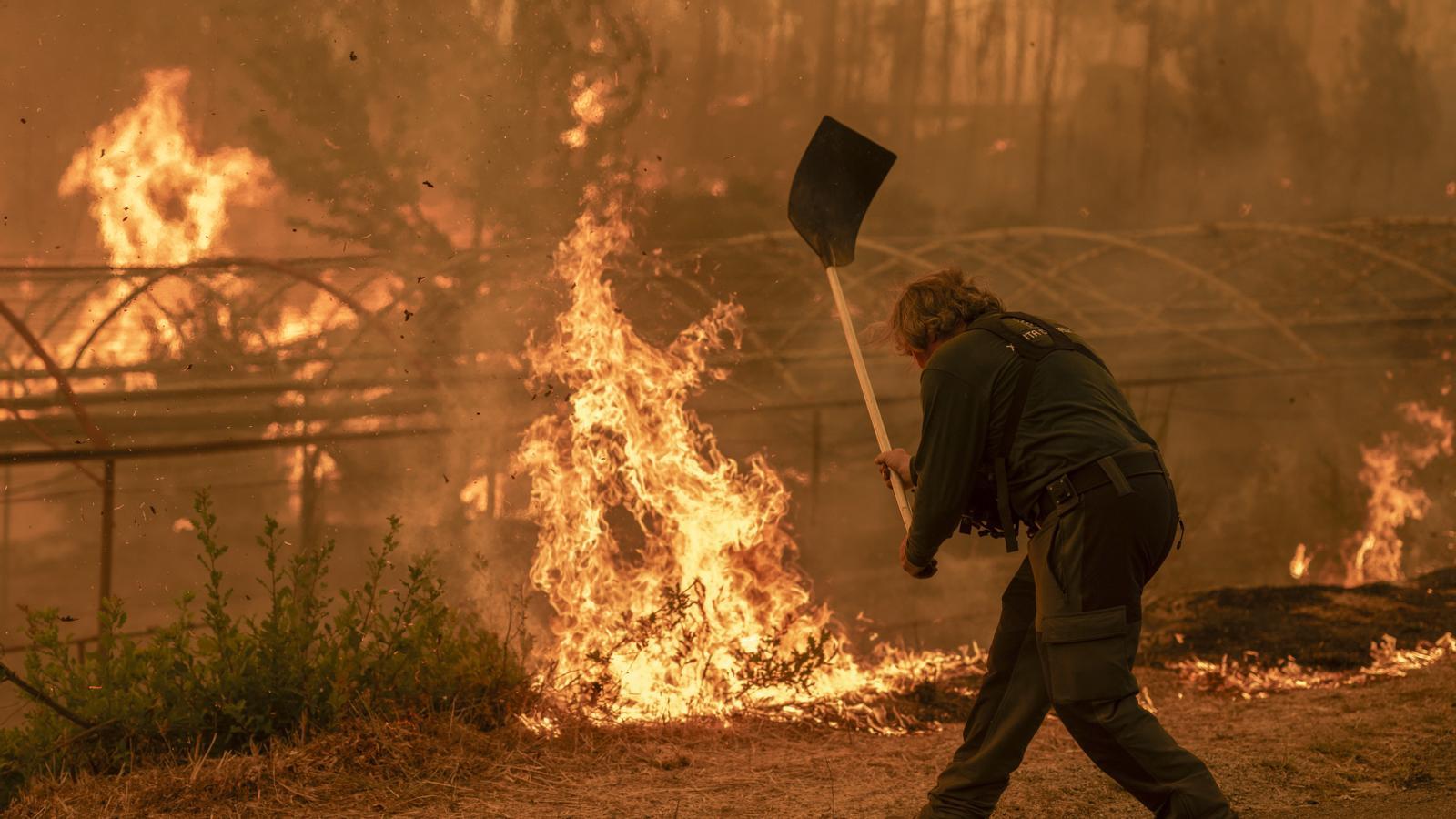Fires: more prevention and less denialism


There will be an increasing number of wildfires that cannot be controlled. This is what experts warn, both scientists and technicians and professionals who risk their lives fighting fires, because the climate crisis is worsening the context in which they occur and making them more difficult to extinguish. They have always occurred, it's true, and in our Mediterranean climate they are a constant, but now, when they occur, they can be more lethal due to the intensification of extreme events caused by global warming. This happens with fire and also with water. Large torrents, known as DANAS, are also becoming more intense and frequent, so it is essential to be prepared.
We are seeing what happens when this is not the case with the large fires currently burning in the northwest of the Iberian Peninsula. In just over four days, more than 200,000 hectares have burned, with particular intensity in the provinces of Ourense, León, Zamora, and Cáceres. And the situation is far from under control, with around forty active fires, some of which continue to grow and cause destruction, deaths (there are now four), and the forced displacement of thousands of residents. Even so, the political squabble has been intensifying for days, as the affected communities, in the hands of the People's Party (PP), are trying to repeat theOperation Mazon and now shifting responsibility to the central government, accusing it of a lack of response and resources, even though the powers of prevention and management initially fall to the regional governments.
There may be improvements, and it remains to be seen whether the central government has done everything possible, but the autonomous communities cannot shirk their responsibilities and are the first to focus on what has not been done and should have been done to prevent what is happening now. From what is known so far, cuts have been made to prevention, there were insufficient personnel, and coordination and initial response have failed. And, most seriously, a policy of climate crisis denial has been pursued, a common practice among the global right, which considers it not a scientific fact but an ideological position, which is preventing decisive action to address it. It is known that fires are extinguished in winter with greater prevention, with intelligent land management that includes not only cleanup but also, for example, the promotion of a mosaic landscape that includes forested areas and crops that act as firebreaks, and a wide range of control and support measures in the countryside. And, surely, even so, there will continue to be fires, some of which are caused by criminal arsonists. And they will be increasingly difficult to control.
Allocating more resources and means to prevention, however, is not politically profitable. They are long-term measures, they are not visible, and when there is no imminent danger, they seem like an unnecessary expense that loses votes or nothing at all. Then, when it occurs, all means are few and the expense multiplies. The same people who denied global warming, the same people who consider planning and prevention centers "shambles" or who haggle over salaries, staff, and training costs for professionals, are the first to demand that everyone be there, from everywhere, right now.
